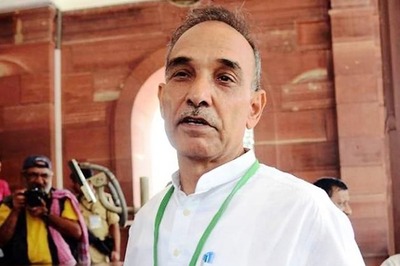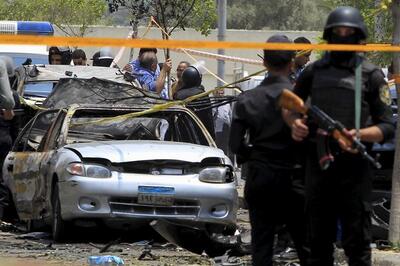
views
PALAKKAD: The cracker mishap at Athani on Wednesday, similar to the one happened at Thrangali near Shoranur which claimed 13 lives in February this year, points to the lackadaisical attitude of the enforcement authorities in ensuring that only the licensed quantities of explosives are stored, safety precautions are taken and banned chemicals are not used. Even last month, two workers were killed under similar circumstances, at a manufacturing unit in Mucheeri near Kongad in Palakkad district. “I am saddened by the gravity of the accident at Athani. In the aftermath of the Thrangali mishap which occurred on February 1, 2011, I had conducted a public hearing there and submitted a detailed report not only on the causes but also the remedial measures that need to be taken. Sadly enough, nothing has been implemented leading to another tragedy, Additional Chief secretary K Jayakumar told ‘Express’ over phone.The government had issued an order on July 15 ,2011, in which it was pointed out the places where crackers are manufactured should be listed and a joint inspection of the personnel of the departments of police, revenue and Fire and Rescue Services need to be carried out to see that all safety precautions have been taken. It is the Fire and Rescue Services which recommends an application based on the provisions for the storage of scientific storage of explosive materials after ensuring that the building has been built as per the required specifications. The district administrations were asked to publish a list of licensed cracker manufacturers, said Jayakumar. “One of the facts which I found during my enquiry at Thrangali was that the potassium chlorate was used there in large quantities. Quantities far in excess of the allowed quantities are always used, the licence serving only as a cover, he said. The festival committees also entrust the task of manufacturing the crackers to persons without enquiring whether they had a valid licence and their units were observing the safety precautions, he added. Now as in Thrangali, in Thrissur also the explosions occurred in sheds . “The deafening sound which occurred in the blasts in Thrissur also suggests the use of potassium chlorate. There needs to be a crackdown on illegal cracker manufacturing units which is made possible only due to the passive connivance of the officials of the law enforcement agencies,” says the secretary of the Public Interest Forum and an office-bearer of the Elephant Lovers’ Association V K Venkatachalam. The report submitted by Jayakumar in the aftermath of the Thrangali incident says that though as per the license only the traditional gun powder and only certain chemicals should be used most often other chemicals are also used. The tests by the forensic science laboratory of the materials and chemicals collected from Thrangali confirmed the use of sulphur, potassium nitrate, potassium chlorate,aluminium etc.Potassium chlorate, the report points out that is a highly potent chemical and in combination with sulphur is prone to explosion. It is often procured without any bill or due diligence. Potassium chlorate is used in combination with silver fulminate to produce a more deafening sound. The report states that as potassium chlorate sometimes ignitesspontaneously or explodes when used with other combustible materials. It has to be used in well regulated places. There is extensive unauthorised use of potassium chlorate, the sale of which goes on unabated, says the report. The report states that the overheated potassium chlorate might have caused the fire in Thrangali.There is no mention of potassium chlorate in the Explosives Act. The authority to grant license up to 15 kilograms is the additional district magistrate and from 15 kilograms to 200 kilograms it is the controller of explosives.In the Thrissur incident there were deaths of workers from Bihar. The report of Jayakumar had stated that workers at Thrangali were mostly uneducated and for them the various chemicals are just yellow powder, white powder and black powder.In its recommendations, the report suggests the amending of the Explosives Act, which is a central legislation. Any person who transfers license to another person should be made culpable. It also suggests that the core employees should be provided training by an agency. The state government should constitute a team to suggest the desirable changes in the central Act in the interest of the state.The report also points to the lack of co-ordination between the controller of explosives, the state government and the district administration which caused widespread misuse of the provisions of the Act. It suggests a coordinating mechanism.Controller of explosives (in charge) Sundaresan told ‘Express’ that he was on his way to Thrissur from Kochi and he could comment only after inspecting the site.




















Comments
0 comment